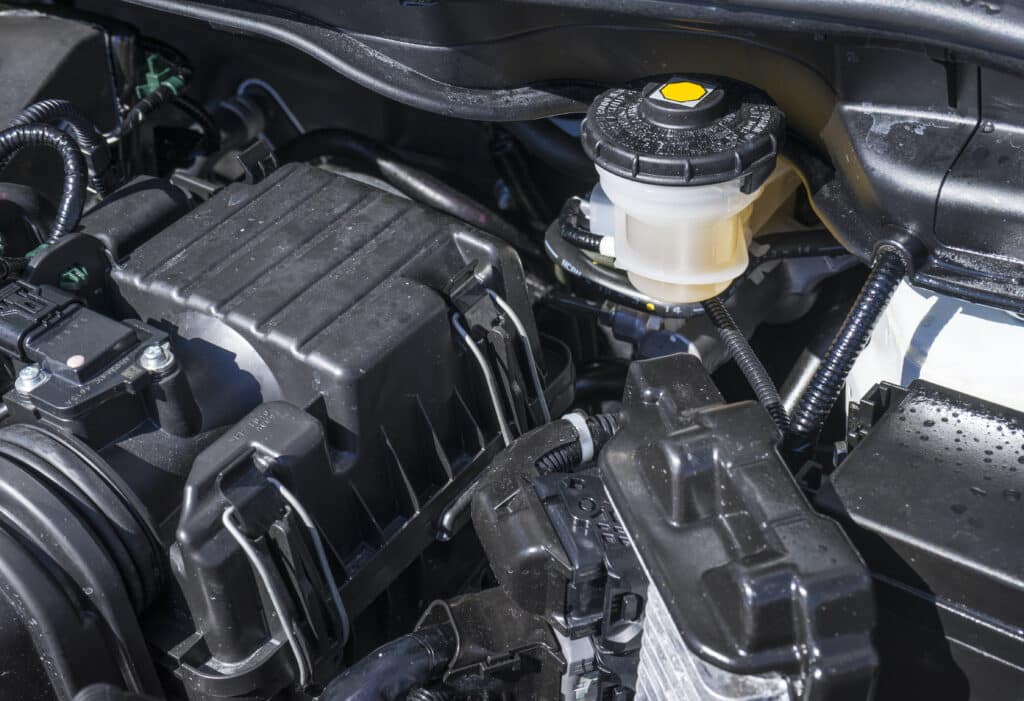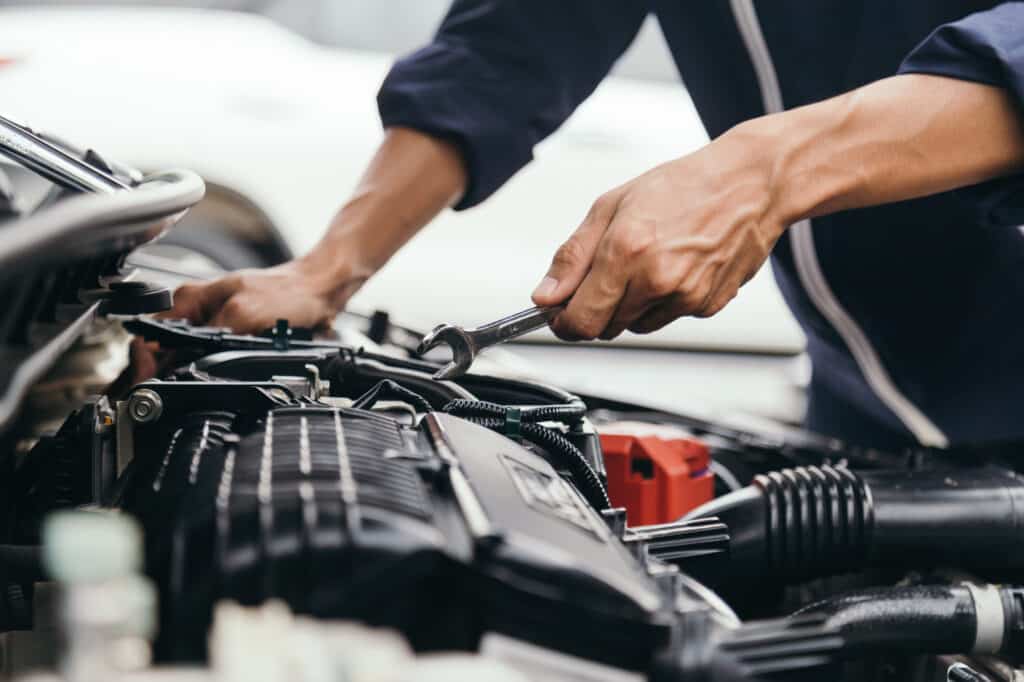The Most Common of Engine Failure and How to Avoid Them
Engines are the heart of any vehicle, making them pivotal for performance and longevity. Their complex mechanisms transform fuel into motion, allowing us to travel near and far. However, when engine failure strikes, it can lead to unexpected expenses and significant inconvenience. Understanding the common causes of engine failure is essential for car owners and vehicle enthusiasts alike. This knowledge not only helps prevent breakdowns but also prolongs the life of your vehicle. This blog post aims to educate you on these causes and offer practical, actionable tips for prevention.
The Importance of Regular Oil Changes
Motor oil is the unsung hero of your vehicle’s engine, playing a vital role in keeping everything running smoothly. It serves as the lubricant for moving parts, significantly reducing friction and preventing unnecessary wear and tear. Additionally, oil aids in controlling the engine’s temperature, ensuring it doesn’t overheat and lead to more severe issues.

Auto Engine Repairing Service
What Happens Without Regular Oil Changes?
Neglecting regular oil changes can be detrimental to your engine’s health. Over time, motor oil breaks down and loses its effectiveness. When oil becomes old and dirty, it fails to lubricate engine components properly, leading to increased friction. This heightened friction can cause parts to grind against each other, accelerating wear and potentially causing overheating. An overheated engine can result in costly repairs and even engine failure.
Steps to Ensure Your Engine’s Well-Being
To keep your engine purring like a kitten, establishing a consistent oil change schedule is crucial. Here are some steps to follow:
- Consult Your Vehicle’s Manual: Your car’s manual is your best friend when it comes to maintenance. It provides specific recommendations on how often to change your oil based on mileage or time intervals. Whether it’s every 3,000 miles or every three months, adhering to these guidelines can make a significant difference in your engine’s longevity.
- Choose the Right Oil Type: Using the correct oil type is just as important as sticking to a schedule. Different engines require different oils, and using the wrong one could affect lubrication and engine performance. Check your manual or consult with a trusted mechanic to ensure you’re using the right oil.
- Regularly Check Oil Levels: Even with regular oil changes, it’s a good practice to check your oil levels frequently. Low oil levels can lead to insufficient lubrication, so make a habit of checking your dipstick. If the levels are low, top up with the recommended oil type to keep your engine protected.
- Professional Maintenance: While it’s possible to change your oil at home, professional engine repairing services, like Pyle Automotive Services, offer expertise that ensures the job is done correctly. They can also check other critical components of your vehicle during an oil change, providing peace of mind.
Understanding and Preventing Engine Overheating
Engine overheating is one of the most common yet serious issues that can lead to significant engine damage. It occurs when an engine’s temperature rises beyond its optimal range, potentially causing metal components to warp. This warping can result in costly repairs or even necessitate a complete engine replacement—a nightmare scenario for any vehicle owner.
Common Causes of Engine Overheating
There are several potential causes behind engine overheating, and understanding them can help in addressing the problem before it escalates:
- Coolant Leaks: Coolant is critical for keeping your engine cool. A leak anywhere in the cooling system can lead to insufficient coolant levels, preventing the engine from properly regulating its temperature.
- Radiator Issues: The radiator plays a pivotal role in dissipating heat away from the engine. If it becomes blocked or damaged, it cannot perform its function effectively, leading to higher engine temperatures.
- Thermostat Failures: The thermostat is responsible for regulating the engine’s temperature by controlling the flow of coolant. A malfunctioning thermostat can either restrict or allow too much coolant flow, both of which can cause overheating.
Steps to Prevent Engine Overheating
Preventative auto maintenance is key to avoiding the headache of engine overheating. Here are a few steps you can take:
- Regularly Check Coolant Levels: Make it a habit to check your vehicle’s coolant levels. Ensure they remain within the recommended range, and top off any deficits. Using the appropriate type of coolant for your vehicle is also crucial.
- Inspect the Radiator and Cooling System: Regular inspections for leaks, blockages, or damage in the radiator and entire cooling system can preempt overheating issues. These components must be free of obstructions to function optimally.
- Ensure Proper Thermostat Functionality: The thermostat should be tested periodically to confirm it opens and closes as it should. A faulty thermostat can lead to erratic temperature control, putting your engine at risk.

Engine Repairing Service
Don’t Ignore Your Engine’s Warning Signs
Your car’s engine is a complex machine that communicates with you, often before it reaches the point of severe damage. Ignoring its subtle (and not-so-subtle) warning signs can lead to costly repairs and extended downtime. At Pyle Automotive Services, we understand the importance of early detection and intervention to keep your vehicle running smoothly and efficiently.
Recognizing the Early Signs
Engines are designed to alert drivers to potential problems through a variety of signs:
- Dashboard Warning Lights: These are your first line of defense. Modern vehicles come equipped with sensors that detect issues ranging from low oil pressure to engine overheating. When a warning light appears, it’s crucial not to dismiss it. Treat it as an urgent call to action to investigate further.
- Unusual Noises: Listen attentively to your engine. Sounds such as knocking, ticking, or grinding are signals that something may be amiss. These noises can indicate anything from minor issues like loose components to major problems like engine misfires or bearing failures.
- Performance Changes: Has your vehicle’s power suddenly decreased? Are you experiencing sluggish acceleration or stalling? These changes in performance can be indicators of underlying mechanical issues that need immediate attention.
Taking Proactive Measures
To prevent minor issues from spiraling into major headaches, consider the following steps:
- Prompt Attention to Warning Lights: Whenever a warning light illuminates on your dashboard, don’t delay. Address the issue promptly by consulting your vehicle’s manual to understand the cause, then seek professional assessment and repairs if necessary.
- Regular Engine Listen-Ins: Make it a habit to listen to your engine’s sounds during your daily drives. If you notice anything unusual, it’s better to be safe than sorry. Reach out to a trusted mechanic for an inspection.
- Performance Monitoring: Keep tabs on how your vehicle performs. Any noticeable decrease in power or other performance issues should be checked out by a professional.
- Routine Diagnostic Checks: Regular diagnostics can catch potential issues before they escalate. At Pyle Automotive Services, our expert technicians use state-of-the-art technology to ensure your vehicle’s health.
Poor Quality Fuel and Contaminants
The quality of fuel you use can significantly affect your engine’s health. Low-quality fuel and contaminants can lead to a buildup of residues and moisture, potentially damaging the engine. Such contaminants can cause blockages or interfere with fuel combustion, reducing efficiency.
To ensure optimal engine performance, use high-quality, reputable fuel sources. Consider adding fuel additives to your routine, as they can help keep the fuel system clean and prevent deposits. It’s also vital to change fuel filters regularly. A clogged filter can allow contaminants to reach the engine, causing damage over time.
Neglecting Regular Maintenance
Regular maintenance is the lifeline of a healthy engine. Skipping scheduled maintenance can result in undetected issues that escalate into severe problems. Routine checks allow for early detection and resolution, ensuring your vehicle runs smoothly.
Adhere to the maintenance schedule outlined in your vehicle’s owner’s manual. These schedules are designed to keep your car in optimal condition. Keep detailed records of all maintenance activities, which can help track what has been done and what is due. Building a relationship with a trusted mechanic, like Pyle Automotive Services, ensures reliable service and expert advice tailored to your vehicle’s needs.

Vehicle Engine Maintenance Service
Why Choose Pyle Automotive Services for Your Engine Maintenance?
When it comes to keeping your vehicle’s engine in top-notch condition, choosing the right service provider is crucial. At Pyle Automotive Services, we pride ourselves on delivering exceptional engine maintenance that ensures your vehicle runs smoothly and efficiently. But what makes us stand out from the rest? Let’s explore why Pyle Automotive Services should be your go-to choice for engine maintenance.
- Expertise You Can Trust: With years of experience under our belts, our skilled technicians have the know-how to handle a wide range of engine issues, from routine tune-ups to complex repairs. We understand the intricacies of different engine types and are equipped with the latest tools and technology to diagnose and resolve problems accurately.
- Comprehensive Maintenance Solutions: At Pyle Automotive Services, we offer a comprehensive suite of maintenance services tailored to meet your vehicle’s specific needs. Our offerings include oil changes, filter replacements, spark plug checks, and much more. By providing thorough inspections and preventive care, we help extend your engine’s lifespan and enhance its performance.
- Commitment to Quality: Quality is at the heart of everything we do at Pyle Automotive Services. We use only the highest quality parts and fluids to ensure your engine receives the best treatment possible. Our meticulous attention to detail and unwavering standards mean you can drive with confidence, knowing your engine is in excellent hands.
- Customer-Centric Approach: We believe in putting our customers first. From the moment you set foot in our shop, you’ll experience friendly and professional service tailored to your unique needs. We’re always happy to answer questions, provide transparent pricing, and keep you informed about your vehicle’s condition.
- Convenient and Reliable Service: We understand that your time is valuable, which is why we strive to offer convenient scheduling options and prompt engine maintenance service. Our goal is to get you back on the road as quickly and safely as possible, minimizing any disruption to your daily life.
In conclusion, maintaining the health of your vehicle’s engine is essential for ensuring its longevity and performance. By staying vigilant—listening for unusual noises, monitoring performance, and adhering to regular maintenance schedules—you can prevent minor issues from escalating into significant problems. At Pyle Automotive Services, we are dedicated to providing expert care, using high-quality parts and offering a customer-centric approach. By choosing us for your engine maintenance, you are investing in the reliability of your vehicle, allowing you to drive with confidence. Don’t hesitate to reach out to our team for all your engine care needs, and keep your vehicle running smoothly for years to come.
https://www.google.com/maps?cid=6320892374453977035

